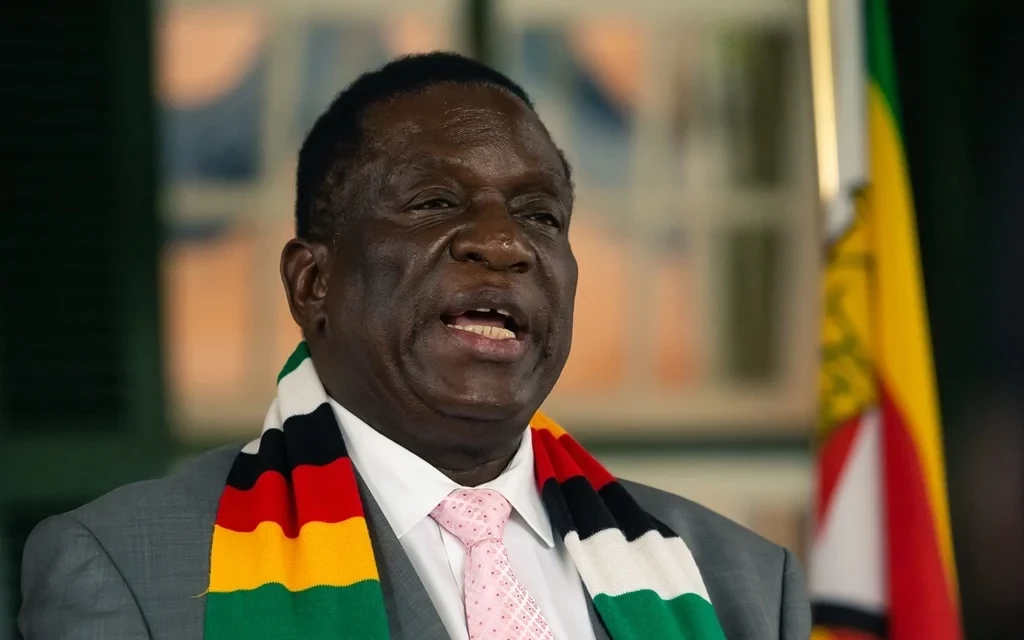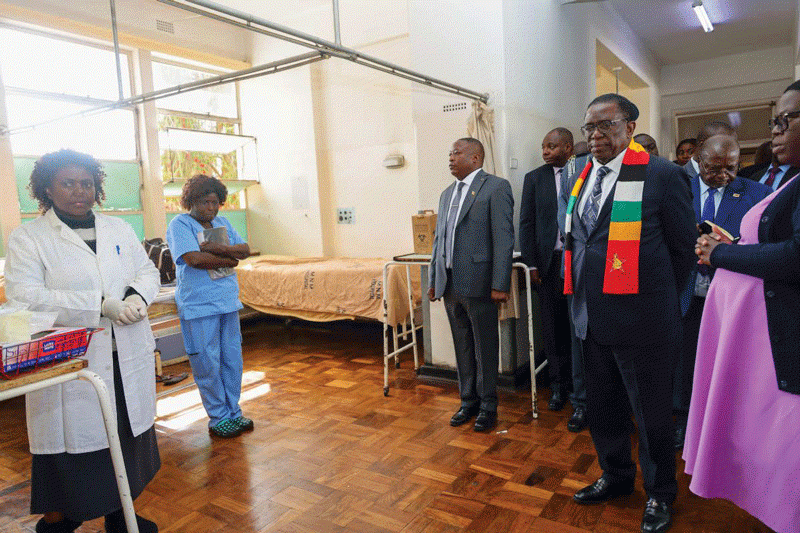
BY STYLE REPORTER
LOCAL filmmaker Eddie Ndlovu, who is also the executive producer of popular soap opera Wenera, which has since been rebranded to Viva Wenera, says the rebranding exercise was necessitated by the need to take a different direction and approach to television production.
Standard Style (SS) caught up with Ndlovu (EN), who shared his expedition in filmmaking among other issues.
Below are excerpts from the interview.
SS: You premiered Wenera (now rebranded to Viva Wenera) on ZBC-TV about six years ago, that is July 2015 to be precise, airing every Monday and Tuesday. How has been the journey?
EN: This has been one hell of a journey. When we premiered on ZBC-TV six years ago, the first season was a challenge as we had the idea, but execution was so hard as this was my first television programme as an independent. I had previously worked with ZBC as a writer and director for a number of dramas. Fast-forward to Season 2, things started shaping up and by Season 3 we were now running two days a week and we had a turnkey studio where we were shooting everything under one roof. We were under commissioning till Season 9 when the broadcaster decided to cut all commissioning deals so we had to run independently. We ran till Season 12 when we decided to halt the production citing production budget as we were now relying on adverts, which were not enough to keep producing the show. We stopped at the right time when the show was still popular so that we could come back and continue where we had left rather than letting the show die then try to revive it.
SS: In 2016, you nearly pulled off air, so, if this filmmaking is not rewarding, what motivates you to keep on making several productions?
EN: It is only here in Zimbabwe that film or television is not rewarding the way it is supposed to be. However, our hope as we keep producing, is that one day things will change and change does not come overnight, but with such productions like Wenera. My motivation comes from how I picture the future of filmmaking. Since we premiered Wenera on television, we brought back the trust in viewers that local dramas are worth watching and following after the end of Studio 263. After Studio 263, no drama lived to see beyond many seasons and draw a lot of talk from the masses. Wenera managed to cover that gap very well and opened doors to many local dramas. So, the success of Wenera on local television makes me believe that we are building an industry that is going to bloom one day. This is a war we are fighting, either it will be our generation that is going to benefit or the next.
- Chamisa under fire over US$120K donation
- Mavhunga puts DeMbare into Chibuku quarterfinals
- Pension funds bet on Cabora Bassa oilfields
- Councils defy govt fire tender directive
Keep Reading
SS: In 2017, some of the actors accused you of unprofessionalism in dealing with their welfare. How do you deal with your cast and crew’s well-being?
EN: It is like driving a car. A passenger sees things differently with how the driver is seeing them. When actors and crew members come on board, we give them clear and straightforward contracts and we also emphasise that there isn’t much money to look out for.
So, when some actors or crew members are released from their parts or jobs, they do whatever it takes to try and tarnish the production forgetting that they accepted the terms and conditions. When we were still on commissioning, we would go for more than 20 episodes without getting paid by the paymaster and the actors would be expecting to be paid in such an environment. I would like to say that I believe I did to the best of my knowledge and that is why Wenera is one of the biggest television brands that we have in Zimbabwe today.
SS: You have rebranded Wenera to Viva Wenera, what inspired the rebranding?
EN: When we went off air at the end of 2019, I wanted to take a different direction, a different approach to television in terms of quality control. I wanted to come up with a show that can also compete outside the borders on the international platforms. So, I added new characters and plot outlines to beef up the show. I also decided to rebrand from just Wenera to Viva Wenera as the former was more of a studio set-up soapie unlike the latter which has more of a drama series kind of feel. It will have pace and character-driven. And also, the other factor that contributed to the re-branding is that some actors left the show to pursue other things or moved to other shows. So, their plots could not continue, so we had to cut them out.
SS: Last week, after six years, you honoured some casts of Wenera. What inspired such a move?
EN: The idea of honouring actors came about in 2018, but unfortunately it just died out. Then this year after some actors left, I felt I should honour those left behind. Although we are currently not on television, they decided to stay. So, we honoured 20 old cast members with a stone-crafted plaque and a framed certificate.
SS: On that same night, you also honoured the new cast for Viva Wenera, what is the motive?
EN: Yes, we also honored the new upcoming cast with certificates of appreciation as they have been attending workshops and boot camps as part of the grooming process ahead of the rebranded Viva Wenera coming soon.
SS: How were the auditions for the Viva Wenera new cast in the midst of this Covid-19 pandemic?
EN: As we have adapted to the new norm of doing business under the Covid-19 pandemic, we did auditions for the new actors online whereby they had to send in their monologues through WhatsApp. Our casting team then selected potential actors who then came for our boot camps for further scrutiny. We have actors from different towns and cities including Mutare, Bulawayo and Masvingo.
SS: You lost some of the actors that were part of Wenera before you took a break. Will this not affect the soap’s storyline?
EN: This will definitely not affect the storyline at all. Like I said before, losing some of the actors was one of the reasons why we rebranded. I am so happy that we managed to do so because we have a new crop of hungry actors whom we have been grooming and are going to add value to the show.
SS: I understand you have struck some screening deals outside the country. Can you share more on this?
EN: As part of the reason to rebrand, we have been in talks to launch Viva Wenera to other television stations like Hi-Impact TV and Vox Africa (who have previously screened old Wenera episodes on their stations) who are both on SKY United Kingdom. We have also been in talks with distributors whom we believe will put Viva Wenera on such platforms like Amazon, Netflix and Showmax, among other platforms. The old Wenera episodes have opened doors for the forthcoming seasons of Viva Wenera and the good thing is that it (Viva Wenera) will be better in so many ways, including quality.
SS: Has the outbreak of Covid-19 affected your production?
EN: Covid-19 affected us negatively at the same time positively too. Negatively, it affected our shooting schedules, our sponsors who were financially affected and above all the environment. Positively, demand for content grew worldwide that saw online platforms and television stations like Hi-Impact and Vox Africa acquiring Wenera opening other markets for us.











